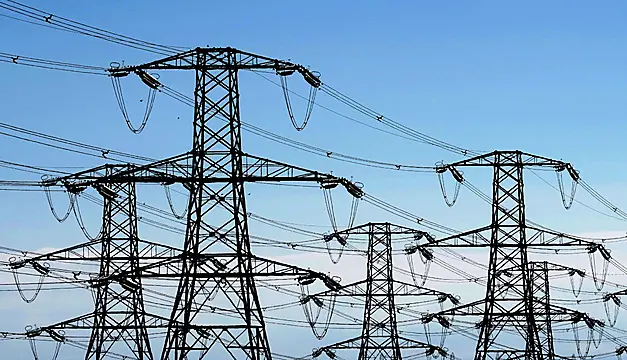Urgent action is needed from the Government in order to meet its 2030 electricity capacity targets, the Climate Change Advisory Council (CCAC) has said.
In its annual review of the electricity sector, the CCAC made a number of recommendations in order to address the situation.
It warned that Ireland’s renewable electricity generation remains significantly below the required annual increase necessary to meet growing demand and simultaneously comply with the sectoral emissions ceilings.
It has made a series of recommendations, including a call to rapidly finalise all elements of planning reform to accelerate the deployment of renewable energy generation, with delays and appeals significantly hindering progress.
In addition, the transposition of EU legislation will enable Ireland to avail of flexibility provisions that other European member states are using to roll out renewable projects faster.
The CCAC said electricity emissions fell in 2023, driven by a notable rise in imported electricity from the UK coupled with a considerable decline in the use of coal for electricity generation.
In order to maintain this trajectory, the CCAC has said it is crucial that the use of coal to generate electricity is stopped by 2025 and that the use of oil is phased out as soon as possible.
Marie Donnelly, chairwoman of the CCAC, said there is great opportunity to be grasped.
“The council’s analysis of the electricity sector is a stark reminder of the critical actions that are required to ensure that Ireland stays within its emissions ceiling while providing security of supply for a growing economy,” she said.
“2023 saw just 0.6GW of new grid-scale onshore renewable connections, well below the 1.6 GW required annually to meet 2030 targets.

“The government must now move urgently to finalise all elements of planning reform that will help accelerate renewable delivery.
“We have a great opportunity in Ireland to harness our indigenous renewable resources both onshore and offshore, to have control and security over our supply and ensure price stability for consumers while achieving our targets and becoming a world leader in renewable electricity generation.
“Government must show leadership and take the actions required to ensure that Ireland can quickly capitalise on resources that we know are available but cannot come online due to system blockages. We know the potential – we now must have it realised.”
Ms Donnelly also drew attention to resilience actions that the council has recommended including critical electricity infrastructure.
“It is important that planning processes are put in place to ensure that new energy infrastructure is developed to withstand future projected climate impacts,” she said.
“Operators must address known flood risks to vital infrastructure and take account of protecting and, where possible enhancing, biodiversity in their developments.
“Building consumer confidence and understanding in electrification is also an important step. If Ireland is to grasp the opportunity in the electricity sector then it is crucial that we bring consumers and communities with us.”







